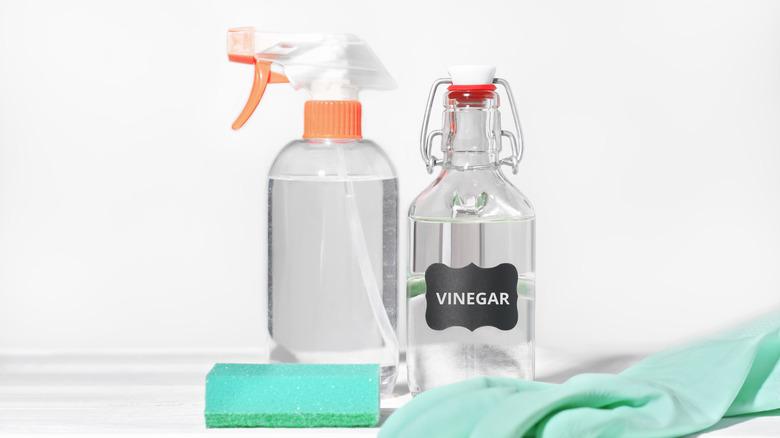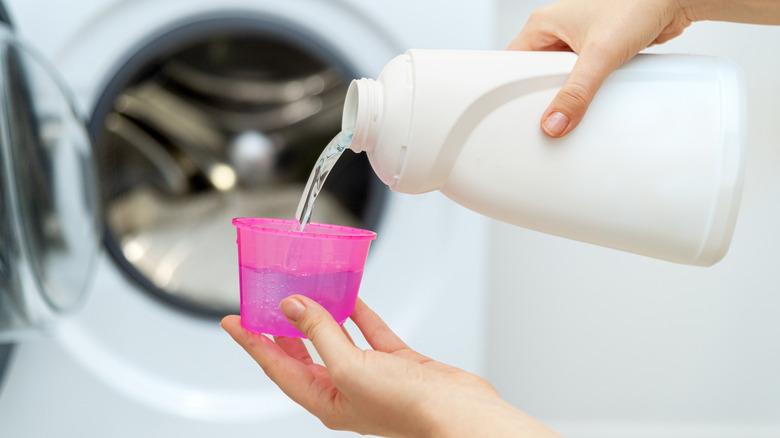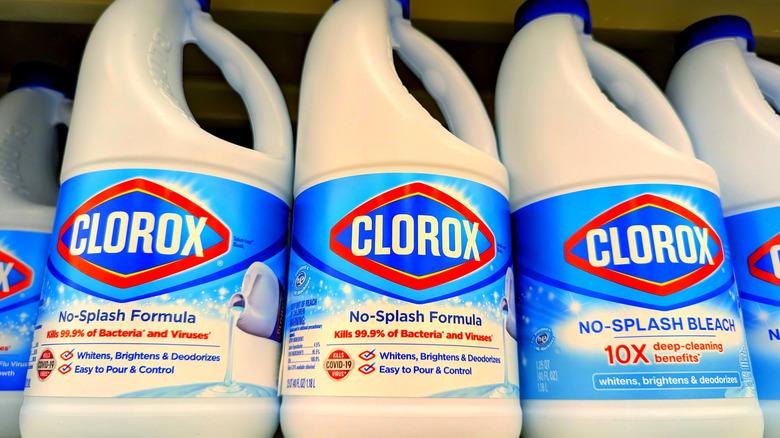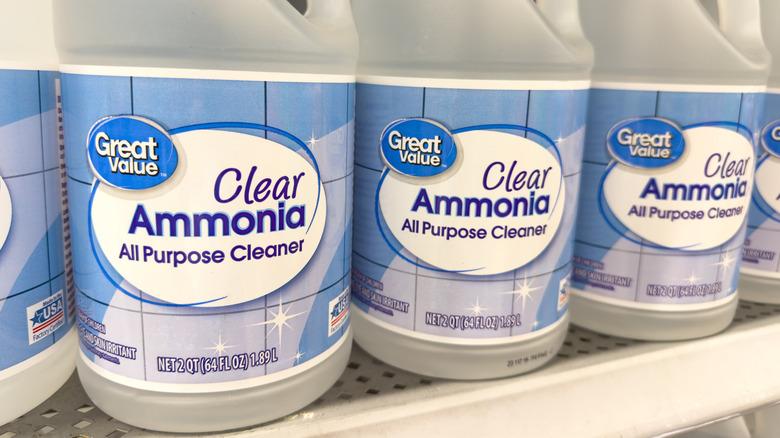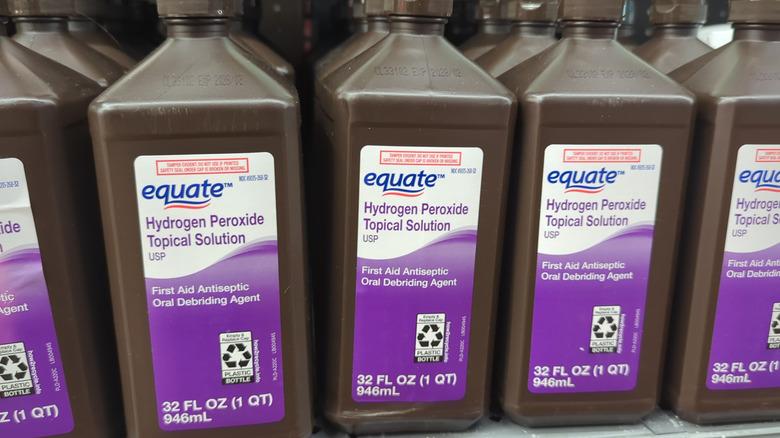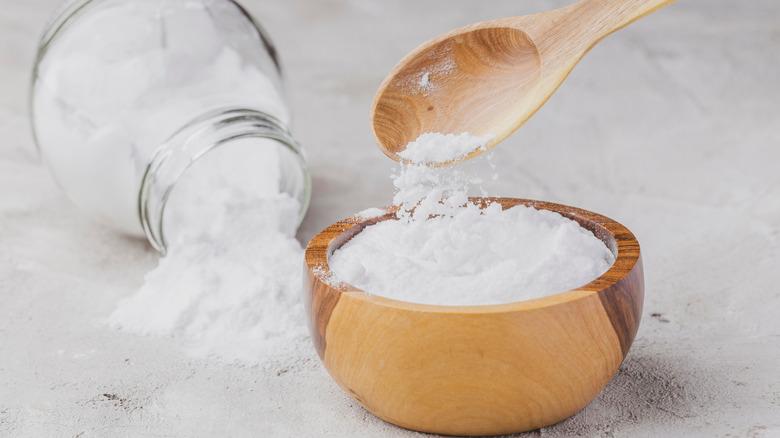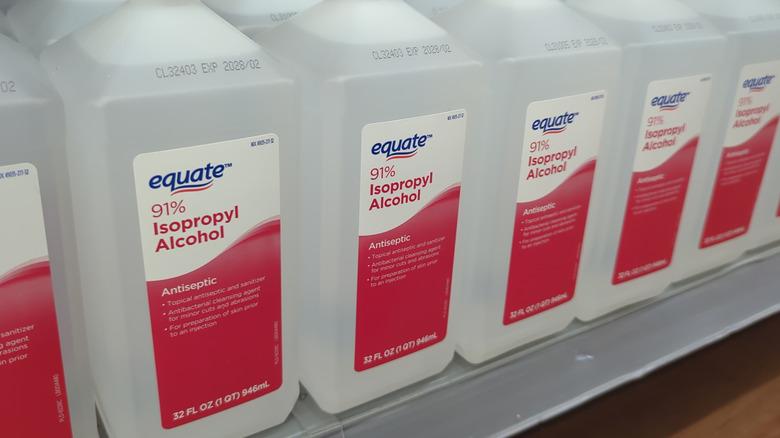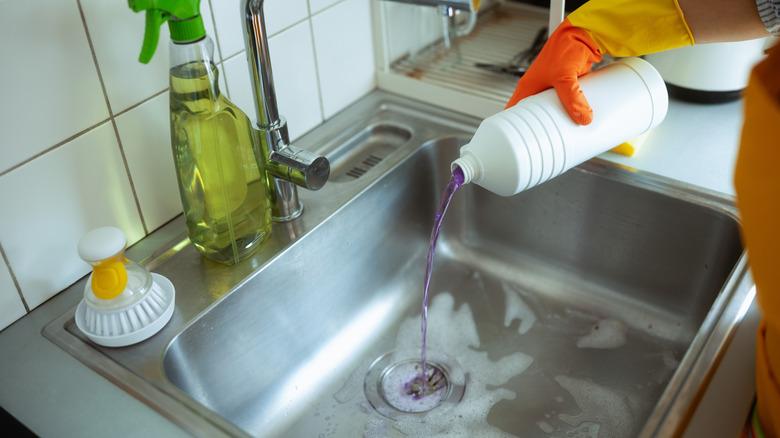7 Ordinary Cleaning Products You Should Never, Ever Mix With Vinegar
Vinegar is the secret ingredient for many cleaning hacks that focus on more natural ways of tidying up around the home. Due to its acidic nature, vinegar works well to break down stains on surfaces and fabrics, and works in conjunction with other ingredients to effectively clean. Take vinegar cleaning solutions with lemon juice, for example — this combo is a great DIY mixture and can be used in lieu of traditional chemical cleaners to deodorize spaces and work away grime and dirt.
With that being said, there are some things it should never be mixed with since certain blended solutions can cause issues for your environment and even your health. Though one material may be fantastic at tackling certain cleaning projects alone, that doesn't mean mixing it with another cleaner will make it more effective. In fact, you can actually be diminishing the strength of either component, or even worse, you can accidentally endanger yourself and others by putting together ingredients that result in a volatile reaction. From chemicals like ammonia, bleach, and hydrogen peroxide to other household cleaning items like laundry detergent, there are some things you should steer clear of if you're planning on using vinegar during your next clean.
Laundry detergent
Formulas of laundry detergents are crafted to have specific pH balances; often detergents are more alkaline in nature to help the cleaning process and to avoid any potential damage to fabric if the cleaning substance is acidic. Mixing acidic vinegar with alkaline laundry detergent, therefore, undermines the pH balance, negating the detergent's ability to be as effective as possible. So, if you're hoping to use vinegar hacks to get stains out of your clothing, be sure to use vinegar as a pre-wash treatment, rather than add it directly to your washing machine with your laundry detergent.
Bleach
Though both solutions are effective cleaning materials, when bleach and vinegar are mixed, it can release chlorine gas, a vapor that is potentially lethal to humans. Since vinegar is acetic acid and bleach is composed of sodium hypochlorite, when the two come in contact with one another, they create a chemical reaction that ends in potentially hazardous results. In a best-case scenario, chlorine gas exposure in small dosages can result in irritated eyes, nose, and throat, but in the worst-case scenario, a person can suffer from poisoning via inhalation.
Ammonia
What's the difference between ammonia and bleach? While often conflated, ammonia is chemically different from bleach and is best suited to clean up grime and dirt — though it won't disinfect like bleach will. While it's tempting to mix ammonia with other cleaners, like vinegar, to help deodorize and rid bacteria, the two substances will neutralize each other to create a mild salt. So, mixing the two reduces the cleaning power of both.
Hydrogen Peroxide
Hydrogen peroxide is a great antiseptic that works well to disinfect high-traffic areas of the house and can clean surfaces like granite counter tops in a breeze. With that said, combining it with vinegar can lead to an incredibly corrosive mixture that can damage surfaces and eat away at things it comes in contact with. For this reason, you really don't want this Frankenstein solution to come in contact with your skin or any of your household surfaces. Given how damaging a hydrogen peroxide-vinegar blend could be, it's best to stay clear of this combination to avoid any health issues.
Baking soda
We all remember our baking soda and vinegar volcanoes, right? It's because of that exact reaction that you never want to mix these two together in a closed container; it can actually burst out of whatever container you mixed them in! Reactivity aside, once the fizz is over, all you have left in your solution is a bit of salt water and off-gassing carbon dioxide — neither of which are particularly useful as topical cleaners. However, this baking soda and vinegar chemical reaction works well to clear drains, which may be the only reason to hazard it.
Rubbing alcohol
Rubbing alcohol, a diluted form of isopropyl alcohol, can be used as a household cleaner, particularly when you need a strong disinfectant. However, mixing this potent substance with vinegar results in a solution that is not particularly useful. The combination essentially results in a mild acid with a harsh smell — not a solution you can effectively use to clean your home.
Drain cleaners
Drain cleaners which are alkaline in nature usually have bleach on their ingredient lists, and as we discussed earlier, mixing vinegar and bleach is a no-go. For drain cleaners specifically, adding vinegar to the equation can cause a thermal reaction, and since many pipes now utilize PVC, those thermodynamics can cause major issues for your plumbing. Furthermore, the aforementioned gases that form from vinegar and bleach mixing can also cause pressure issues, which in turn can make your pipes burst if the pressure ever gets to be too much. Thus, steer clear and keep your pipes intact.
